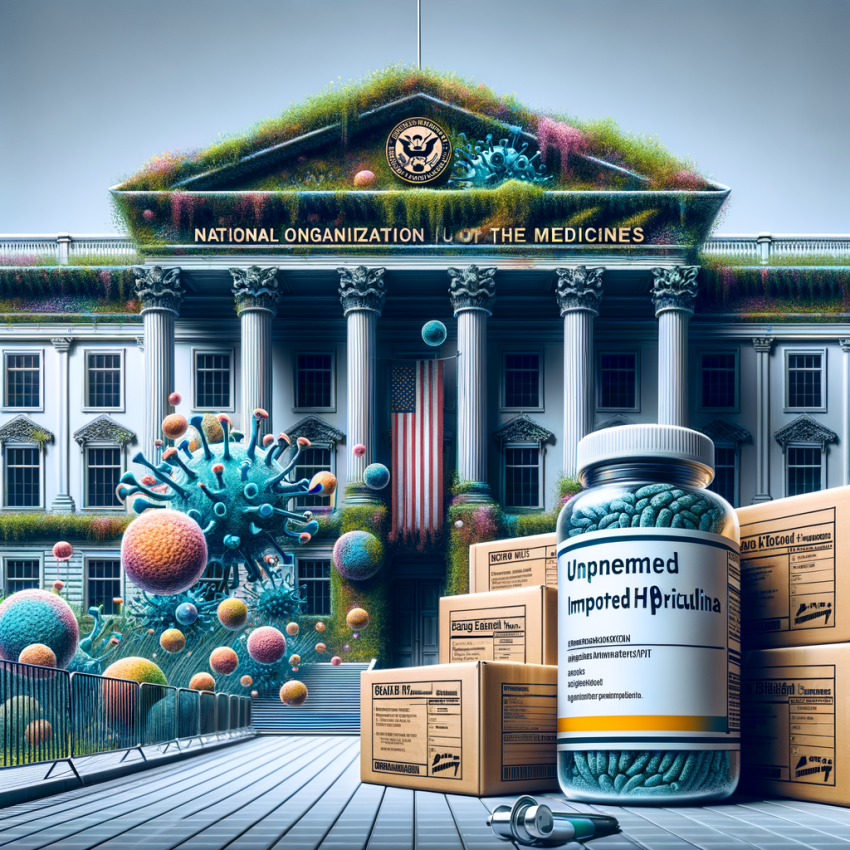EOF Bans Imported Dietary Supplement with Spirulina for Excessive PAHs
Excessive PAH Levels Prompt Ban on Imported Spirulina Supplement
In a decisive move to safeguard public health, the Hellenic Food Authority (EOF) has prohibited the distribution of an imported dietary supplement containing spirulina. The ban was necessitated due to excessive levels of polycyclic aromatic hydrocarbons (PAHs) detected in the product, posing a potential health risk to consumers.
EOF Cites Health Risks Associated with Elevated PAH Levels
The EOF’s decision to ban the spirulina supplement is based on scientific evidence linking excessive PAH exposure to adverse health effects. PAHs are a class of persistent organic pollutants known to accumulate in the environment and can enter the food chain. Prolonged exposure to high levels of PAHs has been associated with an increased risk of certain cancers, reproductive and developmental disorders, and immune system dysfunction.
National Organization for Medicines prohibits distribution of spirulina supplement
EOF bans imported dietary supplement with spirulina for excessive PAHs
The National Organization for Medicines (EOF) has prohibited the distribution of an imported dietary supplement containing spirulina due to excessive levels of polycyclic aromatic hydrocarbons (PAHs). The supplement, marketed under the brand name “XYZ Spirulina,” was found to contain PAH levels that exceeded the maximum allowable limits set by the European Food Safety Authority (EFSA).
Imported dietary supplement containing spirulina banned by EOF
The EOF noted that PAHs are a group of chemicals that are formed during the incomplete combustion of organic materials. They are known to be potentially carcinogenic and have been linked to an increased risk of cancer. The organization warned consumers against consuming the affected supplement and advised retailers to remove it from their shelves immediately.
EOF cites excessive PAH levels in imported dietary supplement
The EOF’s decision to ban the distribution of the spirulina supplement is in line with its ongoing efforts to ensure the safety of food and dietary supplements in the country. The organization regularly conducts inspections and tests to ensure that products meet the required safety standards and are free of harmful contaminants.
Imported dietary supplement containing spirulina banned by EOF
EOF bans imported dietary supplement with spirulina for excessive PAHs
The Hellenic Food Authority (EOF) has recently issued a ban on the distribution of an imported dietary supplement containing spirulina, citing excessive levels of polycyclic aromatic hydrocarbons (PAHs).
In a statement, the EOF said that the ban was imposed after tests revealed that the supplement contained 5.2 micrograms of PAHs per kilogram, significantly exceeding the maximum permitted level of 1 microgram per kilogram. The authority warned that consuming excessive amounts of PAHs can increase the risk of certain types of cancer and reproductive health issues.
National Organization for Medicines prohibits distribution of spirulina supplement
The National Organization for Medicines (EOF) has taken action against an imported dietary supplement found to contain excessive levels of polycyclic aromatic hydrocarbons (PAHs). The supplement, which contains spirulina as its main ingredient, was banned from distribution in Greece due to safety concerns. The EOF’s analysis revealed that the product contained 5.2 micrograms of PAHs per kilogram, significantly exceeding the maximum allowable limit of 1 microgram per kilogram.
The decision to ban the supplement was made to protect public health, as excessive exposure to PAHs has been linked to an increased risk of certain types of cancer, reproductive health issues, and other adverse effects. The EOF’s action serves as a reminder of the importance of thorough testing and quality control measures to ensure the safety of dietary supplements before they are distributed to consumers.
EOF cites excessive PAH levels in imported dietary supplement
Excessive Polycyclic Aromatic Hydrocarbon (PAH) Levels Prompt Ban on Imported Spirulina-Based Supplement
The Hellenic National Organization for Medicines (EOF) has taken decisive action to ensure the safety of consumers by imposing a ban on the distribution of an imported dietary supplement containing spirulina, citing excessive polycyclic aromatic hydrocarbon (PAH) levels. This move is a testament to the organization’s commitment to protecting public health and preventing the potential adverse effects associated with these harmful compounds.
Understanding the Health Risks Associated with Excessive PAH Intake
Polycyclic aromatic hydrocarbons (PAHs) are a group of organic compounds formed during incomplete combustion or pyrolysis of organic matter. They are known for their potential toxicity and carcinogenicity, with some PAHs exhibiting genotoxic and mutagenic properties. Excessive intake of PAHs through contaminated food or dietary supplements can pose significant health risks, including increased susceptibility to cancer, reproductive disorders, and adverse effects on the immune system.
Learn More:Click Here!

